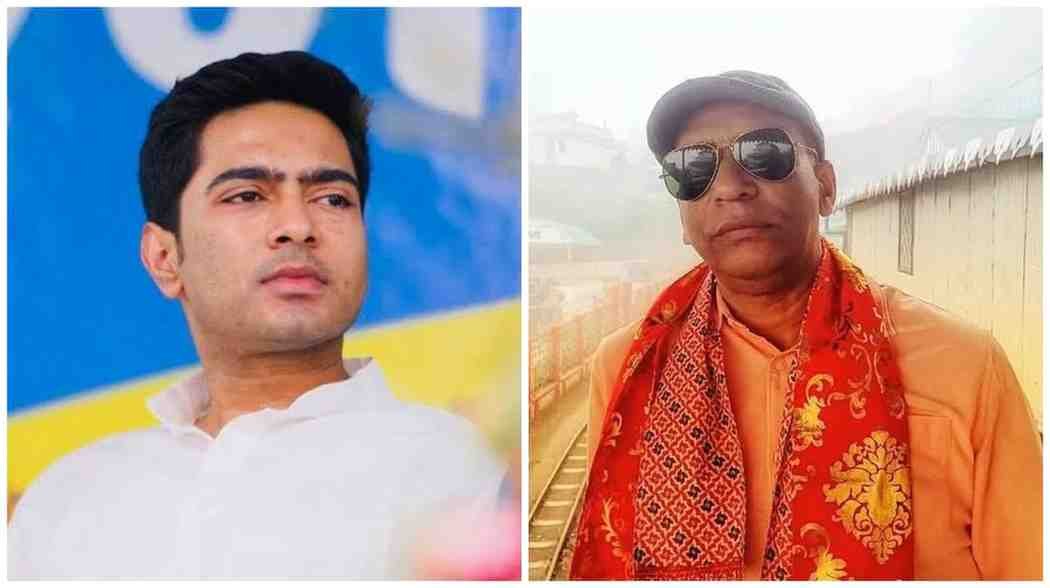Kolkata: The high-profile election petition concerning the Diamond Harbour Lok Sabha constituency took another dramatic turn in the Calcutta High Court on Tuesday.
Justice Saugata Majumdar, presiding over the matter, issued a stern warning to Trinamool Congress MP Abhishek Banerjee after his legal team once again sought additional time to file a written reply in the case.
The petition, filed under EP/05/2024 by BJP leader Abhijit Das, popularly known as Bobby, alleges large-scale booth capturing and malpractice during the 2024 Lok Sabha elections in Diamond Harbour, a constituency that Abhishek Banerjee represents.
Court’s Frustration Over Delays
The proceedings witnessed sharp exchanges after it was revealed that despite being granted three earlier extensions, Banerjee’s legal representatives had not filed their written statement. On Tuesday, when the matter was taken up, Banerjee’s lawyer requested yet another extension.
Senior advocate Billwadal Bhattacharya, appearing for the petitioner Abhijit Das, opposed the plea, stressing that the repeated delays were obstructing the progress of the case.
Justice Majumdar initially contemplated imposing a fine of ₹5,000 for what was seen as a deliberate attempt to stall the matter. However, considering submissions made by counsel, the penalty was waived. The court nonetheless fixed 28 August 2025 as the final deadline for Banerjee to file his reply.
The judge categorically warned that failure to meet the deadline would result in the court proceeding ex parte—meaning the case would advance without considering Banerjee’s side of the arguments.
Evidence Preservation Order Still in Force
This case has already witnessed significant judicial directions earlier this year. On 8 April 2025, the High Court ordered the Chief Election Commissioner of India and the District Magistrate-cum-District Election Officer of South 24 Parganas to preserve all election-related records.
The directive covers EVM machines, CCTV recordings, electoral rolls, polling devices, and other material evidence, ensuring that nothing is tampered with or destroyed.
The preservation order continues to hold force, making certain that crucial documents and devices are kept intact for potential examination.
Demand for Forensic Examination
During Tuesday’s hearing, petitioner’s counsel Billwadal Bhattacharya urged the court to direct forensic examination of the EVMs, CCTV footage, and other electoral materials.
He argued that only an independent forensic evaluation could ascertain the credibility of allegations of booth capturing and rigging.
The Election Commission of India’s counsel, however, resisted the suggestion, stating that the Commission intended to submit a formal written application opposing the dispatch of electoral materials to a forensic laboratory.
This divergence of positions set the stage for a significant clash in the next phase of the proceedings.
Election Commission’s Role Under Scrutiny
An unusual element has added another layer of controversy to the case. Court records indicate that lawyers representing the Election Commission appeared in the matter at earlier stages even before the Commission was officially served with notice.
This prompted observations in the court that the Commission’s conduct in the case appears “undoubtedly suspicious.” Such remarks have amplified concerns about the neutrality of the Commission in overseeing free and fair elections in the state.
Political Significance of the Case
The Diamond Harbour election petition has rapidly emerged as one of the most closely followed legal battles in West Bengal.
Abhishek Banerjee, who is also the national general secretary of the Trinamool Congress and the nephew of Chief Minister Mamata Banerjee, had won Diamond Harbour with a decisive margin in the 2024 Lok Sabha elections.
However, allegations of widespread booth capturing, intimidation of voters, and irregularities during polling have kept the constituency in the spotlight.
For the BJP, which has been struggling to expand its footprint in Bengal, the petition represents a chance to challenge the legitimacy of the TMC’s hold in one of its strongholds.
The repeated delays in filing Banerjee’s reply have further heightened political speculation, with the Opposition alleging that the TMC is deliberately attempting to buy time to prevent the court from scrutinizing sensitive election-related materials.
Next Date of Hearing
The High Court has listed the matter for 4 September 2025, when it will consider the petitioner’s demand for forensic testing and review the Election Commission’s formal objections.
With the preservation order still intact, and the looming threat of an ex-parte order, the next hearing is expected to play a decisive role in shaping the trajectory of the case.
Analysis
This election petition has gone far beyond a mere dispute between two political opponents. The High Court’s sharp warnings, the preservation of all election materials, the call for forensic testing, and questions raised about the Election Commission’s conduct have combined to make this a landmark case.
At stake is not just the political future of Abhishek Banerjee but also the credibility of electoral processes in West Bengal. As the case progresses, its outcome is likely to have wide implications on how allegations of booth capturing and malpractice are handled in Indian courts, potentially setting new precedents for transparency and accountability in elections.








